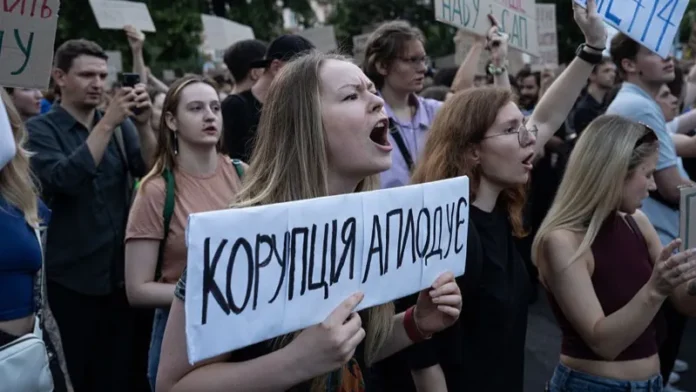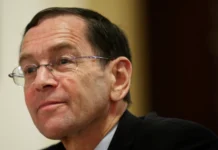Ukrainian President Volodymyr Zelensky has signed a contentious new law that critics say undermines the independence of the country’s key anti-corruption agencies, triggering widespread protests and raising concerns among Ukraine’s Western allies.
The legislation, signed this week, places the National Anti-Corruption Bureau (NABU) and the Specialised Anti-Corruption Prosecutor’s Office (SAPO) under the control of the prosecutor general, a move opponents argue severely weakens the autonomy of bodies established to combat high-level graft.
In a televised address, Zelensky defended the bill, claiming it was necessary to root out alleged “Russian influence” within the agencies. “There is no rational explanation for why criminal proceedings worth billions have been ‘hanging’ for years,” he said, adding that the prosecutor general would now ensure “the inevitability of punishment.”
The law grants Prosecutor General Ruslan Kravchenko, a Zelensky ally, the authority to reassign and even close corruption investigations, sparking fears that probes into powerful figures may now be quietly buried.
Public backlash was swift. Hundreds took to the streets of Kyiv in the largest anti-government demonstration since Russia’s full-scale invasion began in 2022. Protests also erupted in Lviv, Dnipro, and Odesa. Placards bore messages such as “We chose Europe, not autocracy” and “My father did not die for this.”
The new law has alarmed Western partners, who see NABU and SAPO as pillars of Ukraine’s reform agenda and key to its bid for European Union membership. The European Commission and G7 ambassadors expressed concern over what they see as a serious regression in transparency and accountability.
“The dismantling of key safeguards protecting NABU’s independence is a serious step back,” warned European Commissioner for Enlargement Marta Kos. EU officials stressed that continued financial aid and progress toward EU accession remain conditional on Ukraine’s commitment to democratic reforms and anti-corruption efforts.
Ukraine’s government has pointed to recent security operations targeting alleged Russian spies within NABU as justification for the legislative changes. Still, critics argue that the move risks rolling back years of hard-won progress since the 2014 Euromaidan uprising that ousted the pro-Russian government and set Ukraine on a pro-democracy path.
Despite the controversy, Ukraine’s Western allies remain cautious, reluctant to withhold support at a time when Ukrainian forces are under intense pressure on the battlefield. However, diplomatic sources suggest that Kyiv will face growing scrutiny over its governance and reform record moving forward.
Written By Rodney Mbua



















